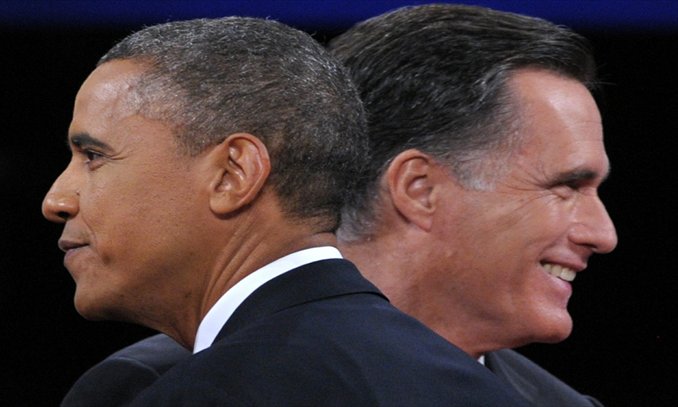China an adversary: Obama

US President Barack Obama surprised China and his own people by labelling China an "adversary" in the final presidential debate on Monday, though he and Republican candidate Mitt Romney also made friendly gestures toward China.
"China's an adversary, and also a potential partner in the international community if it's following the rules," Obama said.
The rare display of labeling surprised US media. CNN pointed out Tuesday that it ran "counter to the general trend in Sino-US relations" in recent years, and Secretary of State Hillary Clinton had earlier refuted those who defined China as an adversary.
The Chinese foreign ministry on Tuesday also urged US politicians to view China's development objectively.
"US politicians, whatever political parties they belong to, should objectively view China's development and do more good things that will benefit China-US cooperation and mutual trust with a responsible attitude," spokesman Hong Lei told reporters at a regular press briefing.
China-bashing was one of the themes in the 90-minute debate in Boca Raton, Florida, which revolved around US foreign policy and came only two weeks before the November 6 elections.
Obama boasted that his administration has brought more trade violation cases against China than the previous administration did in two terms.
Romney, on his side, repeated the harsh rhetoric he has made throughout his campaign trail, including the pledge to label China a currency manipulator once he is elected.
But the former Massachusetts governor also struck a new, conciliatory tone on China.
"We can be a partner with China. We don't have to be an adversary in any way, shape or form," he said. "We can work with them, we can collaborate with them, if they're willing to be responsible."
Obama and Romney's comments on China show that the US still believes that China's rise will bring uncertainties to the US strategically, economically and in the security area, Wang Fan, director of the Institute of International Relations at the China Foreign Affairs University, told the Global Times.
"They want to see China change and develop under the rules made by the US and make sure that China's rise won't hurt US interests. But the US side has to be aware that the development of the relationship between China and the US is not one-sided," he said.
Ni Feng, vice director of the Institute of American Studies at the Chinese Academy of Social Sciences, said that the comments by Obama and Romney show that the two basically share the same ideas on developing the relationship with China and that US policy on China is expected to be consistent no matter who is elected.
"But a new characteristic of the development of the US relationship with China is that domestic influences in both countries have been getting more significant in recent years," Ni told the Global Times.
The debate between Obama and Romney was one of the most searched terms on China's Weibo, the Twitter-like microblogging site, and major news websites all had special reports about the debate.
"The expanding engagement between the world's two largest economies will make ordinary people in both China and the US have an increasingly strong sense of the impact of the China-US relationship on their daily lives, although such an impact might not be totally positive," Ni noted.
At a panel discussion on the US presidential debate organized by the US embassy in Beijing Tuesday, Ted Dean, Chairman of the American Chamber of Commerce said that people in China and the US need to work harder to better each other's understanding.
He said China and the US have a lot of common interests, such as regional peace and stability as well as nuclear non-proliferation, so there is no need to dwell on the differences between the two countries.
Jack Aldane and agencies contributed to this story